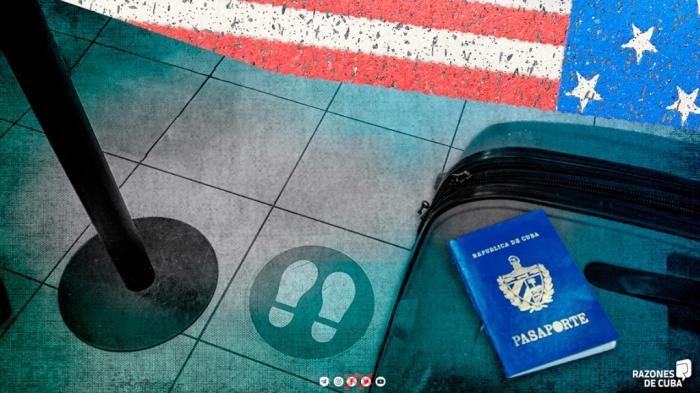
The need for the full resumption of services such as visa, by the U.S. Consulate in Havana, the fluidity of migration and the concern for the legal status and respect for Cuban citizens in that country were topics discussed yesterday in the migration talks between Cuba and the United States.
The dialogue on compliance with migration agreements and the commitment to ensure that it is safe, organized and regular, was described as "frank and constructive", in a press conference given by the Cuban Vice Minister of Foreign Affairs, Carlos Fernández de Cossío.
He said that the concern of the Caribbean nation was conveyed regarding the legal limbo in which some Cubans find themselves in U.S. territory, and who have not been given a concrete legal status.
Regarding the possible "massive deportation" publicly expressed by the next administration, the official said that, although the issue was not discussed specifically, "there are migration agreements between both countries that must be respected", and added that in this "context, it is not realistic" that it would transcend.
"But as important as this is the question that it is quite unfair to pretend to deport hundreds of thousands of Cubans who are rooted in that territory and, therefore, have made their lives, families and jobs there," he argued.
The diplomat also pointed out that this insecurity suffered by some who are in the U.S. is due, in part, to this irregular migratory flow caused by components such as the privileged treatment granted by the government of the North to Cubans who try to enter its territory by any means, which he defined as a "pull factor".
There is also what is known as the "push factor", he argued, directed and encouraged by the economic blockade policy that represses the living standards of Cubans on the Island, a combination that poses a fundamental contradiction with the purposes of these agreements and with the mutual commitment to guarantee an orderly migration.
He informed that concern was expressed about the aggressive treatment in U.S. airports against some Cubans residing in that country, and others who travel to the United States, even when they reside in third countries.
In terms of migratory cooperation, Cuba expressed its willingness to consolidate reciprocity and expand ties, based on the geographic proximity and the considerable flow of travelers between the two countries, stated Fernández de Cossío.








